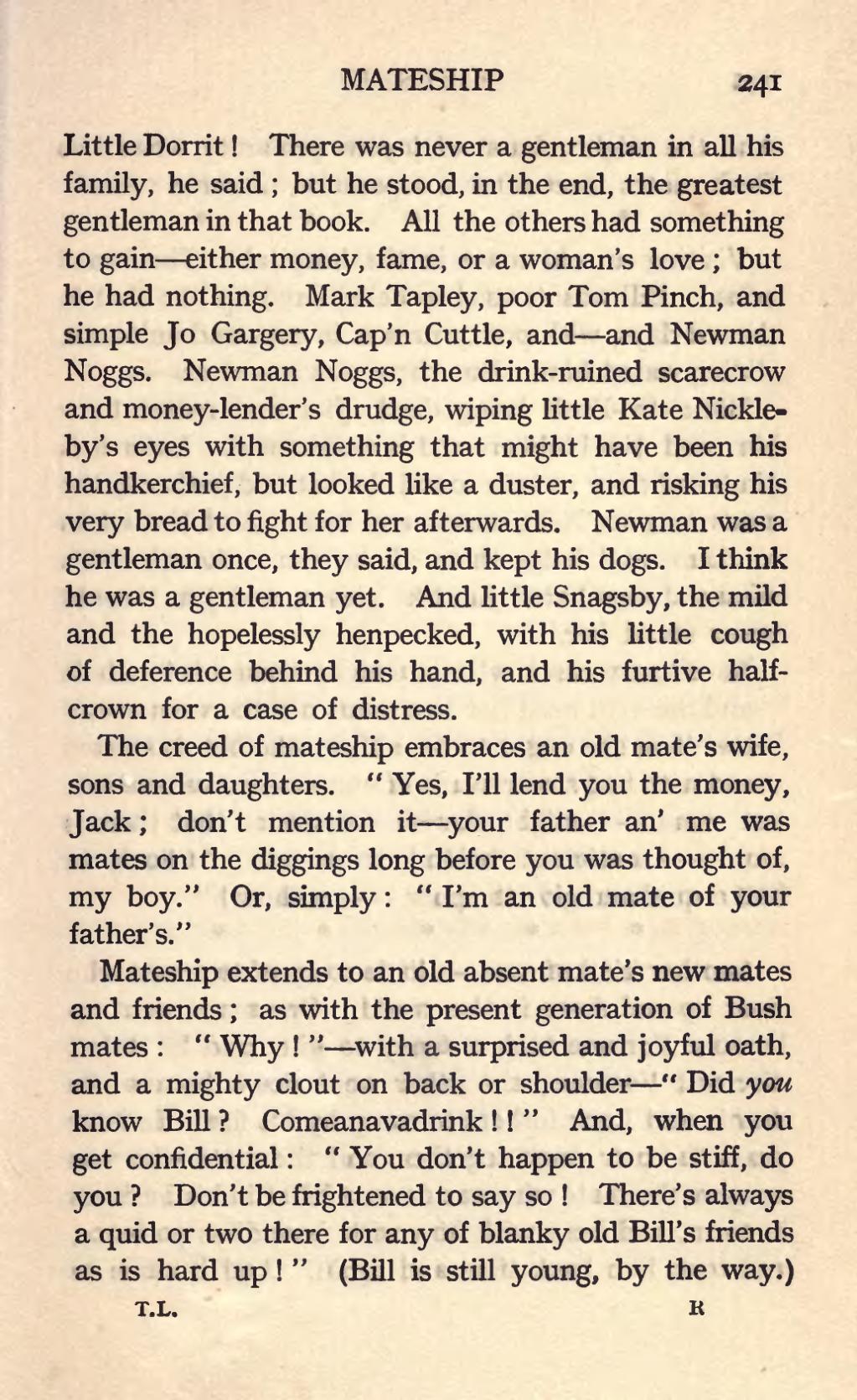Little Dorrit! There was never a gentleman in all his family, he said; but he stood, in the end, the greatest gentleman in that book. All the others had something to gain—either money, fame, or a woman's love; but he had nothing. Mark Tapley, poor Tom Pinch, and simple Jo Gargery, Cap'n Cuttle, and—and Newman Noggs. Newman Noggs, the drink-ruined scarecrow and money-lender's drudge, wiping little Kate Nickleby's eyes with something that might have been his handkerchief, but looked like a duster, and risking his very bread to fight for her afterwards. Newman was a gentleman once, they said, and kept his dogs. I think he was a gentleman yet. And little Snagsby, the mild and the hopelessly henpecked, with his little cough of deference behind his hand, and his furtive half-crown for a case of distress.
The creed of mateship embraces an old mate's wife, sons and daughters. "Yes, I'll lend you the money, Jack; don't mention it—your father an' me was mates on the diggings long before you was thought of, my boy." Or, simply: "I'm an old mate of your father's."
Mateship extends to an old absent mate's new mates and friends; as with the present generation of Bush mates: "Why!"—with a surprised and joyful oath, and a mighty clout on back or shoulder—"Did you know Bill? Comeanavadrink!! "And, when you get confidential: " You don't happen to be stiff, do you? Don't be frightened to say so! There's always a quid or two there for any of blanky old Bill's friends as is hard up! " (Bill is still young, by the way.)
